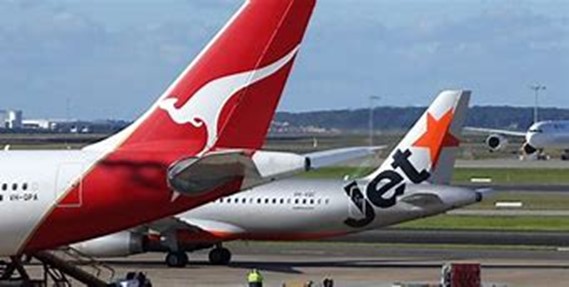
Qantas and Jetstar – Photo: Qantas
The Qantas Group intends to generate over 8,500 new high-skill jobs in Australian aviation over the next decade as it transitions from recovery to growth.
Pilots, engineers, cabin crew, and airport staff are among the additional employment being created across the country as a result of investments in new aircraft and increased flying to fulfil long-term demand through Qantas, Jetstar, QantasLink, and Qantas Freight.
During the next ten years, the Qantas Group will hire more than 30,000 frontline employees, accounting for regular attrition and growth. The Group will employ around 32,000 people by 2033, up from over 23,500.
When it emerged from the pandemic, the Company updated its fleet plans, placing orders and acquiring purchasing rights for up to 299 narrowbodies and 12 widebodies for delivery over the following decade. This next-generation aircraft’s capabilities will change the Group and its network.
Qantas stated last week that up to 22 mid-life and wet-leased aircraft would arrive in the next two years to assist in meeting demand in various sectors, including leisure travel, freight, and the resources industry.
Because aviation jobs often demand specific skills, the recruiting push is supported by a considerable investment in training that will provide a long-term pipeline of talent for the Qantas Group and Australian aviation.
Qantas group engineering academy
Qantas also announced the establishment of the Qantas Group Engineering Academy in Australia, which would be capable of training up to 300 engineers annually.
The Academy will train aviation engineers for the Qantas Group and the wider aviation sector, including defence contractors and general aviation, in high demand. Encouraging more women to consider a career as an aircraft engineer will be a key priority.
During the next decade, the Qantas Group will require around 200 additional engineering recruits each year to satisfy growth and attrition as current engineers retire. This number surpasses the national supply of new aviation engineers each year, indicating the need for a new training pipeline.
Qantas will invest millions of dollars to create the Engineering Academy, welcoming its first students in 2025. Entry-level classroom training for aviation engineering requires at least a year, with further on-the-job training necessary to progress through the levels of accreditation. A fully licenced aviation engineer usually requires at least five years of practical and classroom preparation.
Qantas will work with unions and the industry to finalise the Academy’s operations, including how it will integrate with Qantas and Jetstar’s existing apprenticeship programmes. Qantas aims to partner with registered training providers for the Engineering Academy, as it did for the Qantas Group Pilot Academy, which opened in early 2020.
The site of the Academy will be decided as part of the final design, which is planned to be completed by the end of 2023.
“Aviation is essential to a country like Australia, and you need significant talents in the pipeline to fuel it,” said Qantas Group CEO Alan Joyce. It covers big airlines, small regional carriers, defence, and general aviation.
“Pilots and engineers, in particular, must navigate an entire ecosystem, and the long-term skill set necessary necessitates regular renewal. Qantas is already Australia’s single largest investor in aviation skills, particularly when you include the continual training of our pilots, engineers, and cabin staff merely to keep the status quo.
“We opened our pilot academy three years ago, and now we’re announcing plans for an engineering academy, which will create up to 300 skilled personnel per year to address the demands of Qantas and Australia’s larger aviation ecosystem.
“We order aeroplanes up to ten years in advance; therefore, we must consider the manpower and skills required to operate them comparably. At that time, we expect to create an estimated 8,500 new aviation jobs in Australia, with most of those roles requiring years of training.
“We look forwards to finalising specifics for the engineering academy with the industry, training organisations, unions, and governments.
“In the short term, we’re preparing to handle the increased demand in all areas we service.
“With new planes arriving each month, we need more pilots, engineers, cabin crew, and others.” In addition to replacing natural attrition, we intend to create over 2,000 new jobs over the next 18 months, so if you’ve ever wanted to work in aviation or at the national carrier, now’s a great time to join,” Mr Joyce added.
TEN-YEAR RECRUITMENT NEED
The 8,500 new Australia-based operational positions the Qantas Group will create over the next decade include:
Cabin Crew 4500
Pilots 1600
Engineers 800
Other Ops Roles 1600
For more information about the Qantas Group’s commitment to training, click here.
 ” Breaking” Lock In Your Next Holland America Line Cruise for Just $25 Per Person
” Breaking” Lock In Your Next Holland America Line Cruise for Just $25 Per Person  Oceania Vista to Sail Australia in 2027/28 as Riviera Wraps a Standout Season
Oceania Vista to Sail Australia in 2027/28 as Riviera Wraps a Standout Season 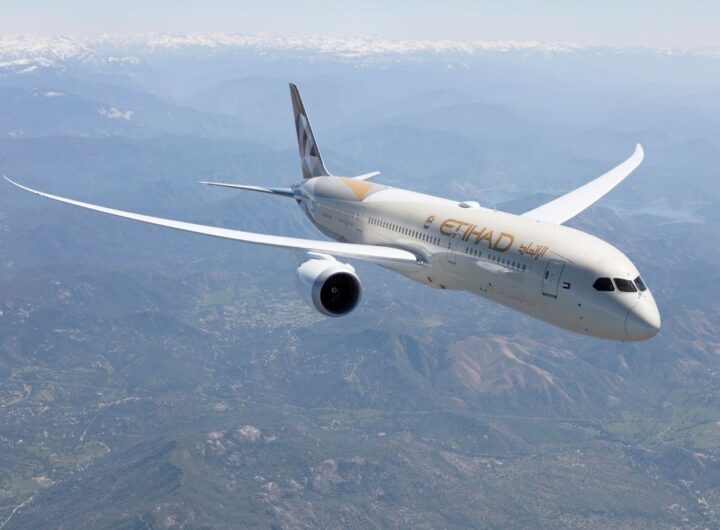 Etihad Upgrades All Australia Flights to Its Newest Business Class Suites
Etihad Upgrades All Australia Flights to Its Newest Business Class Suites 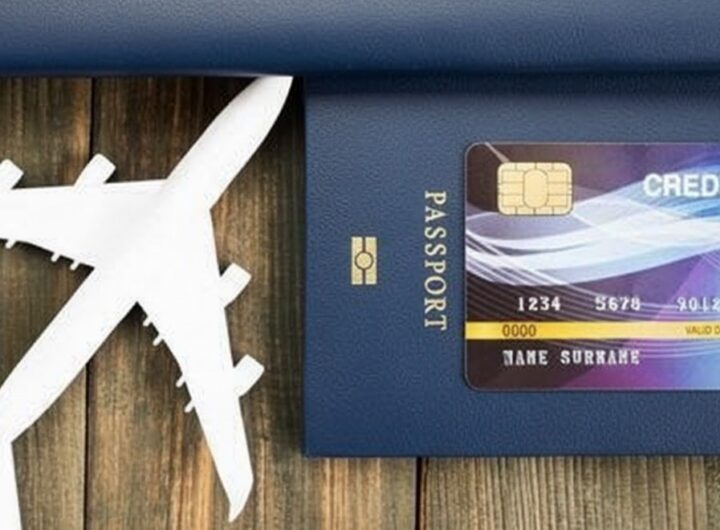 Aussies Are Jet-Setting for Free: How Frequent Flyer Points Saved Travellers $1,140 on Average Last Year
Aussies Are Jet-Setting for Free: How Frequent Flyer Points Saved Travellers $1,140 on Average Last Year 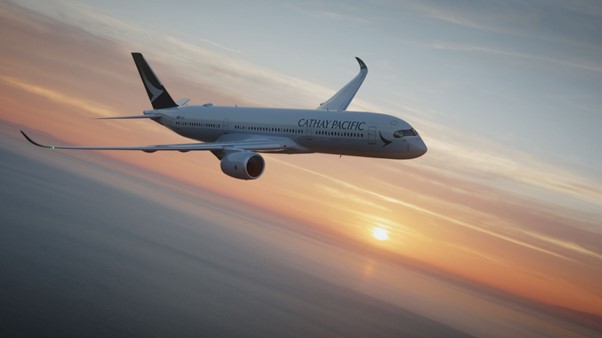 Cathay Strengthens Global Sustainability Leadership With Record SAF Commitments in 2025
Cathay Strengthens Global Sustainability Leadership With Record SAF Commitments in 2025 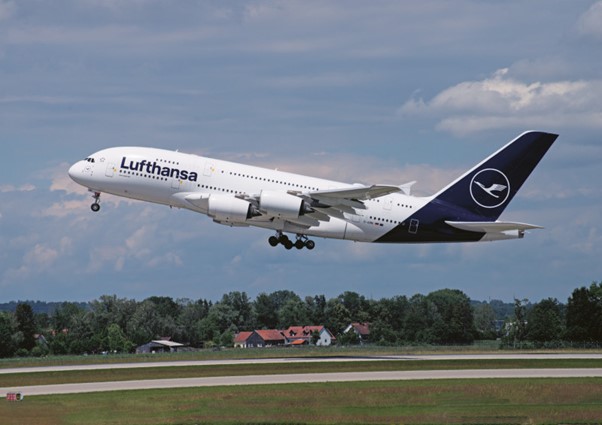 Lufthansa Begins A380 Business Class Retrofit, Elevating Comfort and Privacy Across Its Largest Aircraft
Lufthansa Begins A380 Business Class Retrofit, Elevating Comfort and Privacy Across Its Largest Aircraft  AmaWaterways Launches Fresh Brand Identity, Encouraging River Cruisers to ‘Follow Their Own Current’
AmaWaterways Launches Fresh Brand Identity, Encouraging River Cruisers to ‘Follow Their Own Current’  Marriott Bonvoy Launches Global Promotion Offering Bonus Points and Elite Night Credits Across 30+ Brands
Marriott Bonvoy Launches Global Promotion Offering Bonus Points and Elite Night Credits Across 30+ Brands 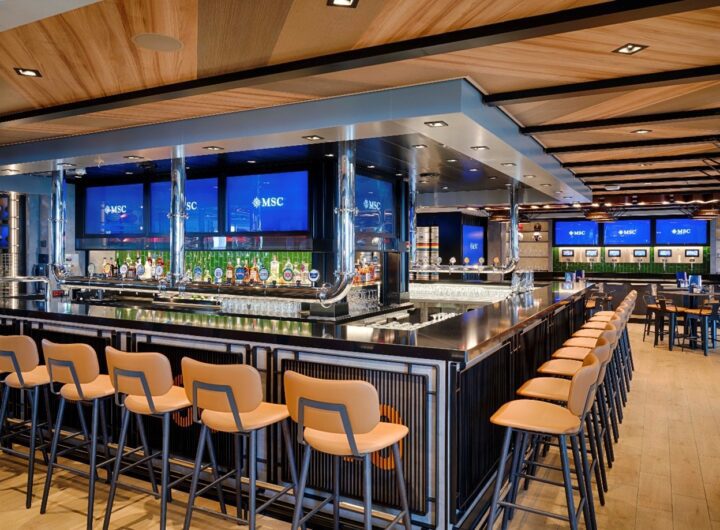 MSC Cruises to Stream 2026 Global Soccer Tournament Live Across Its Entire Fleet This Summer
MSC Cruises to Stream 2026 Global Soccer Tournament Live Across Its Entire Fleet This Summer  Five Reasons to Visit Kamalaya Now: Inside the Next Era of Thailand’s Legendary Wellness Sanctuary
Five Reasons to Visit Kamalaya Now: Inside the Next Era of Thailand’s Legendary Wellness Sanctuary 